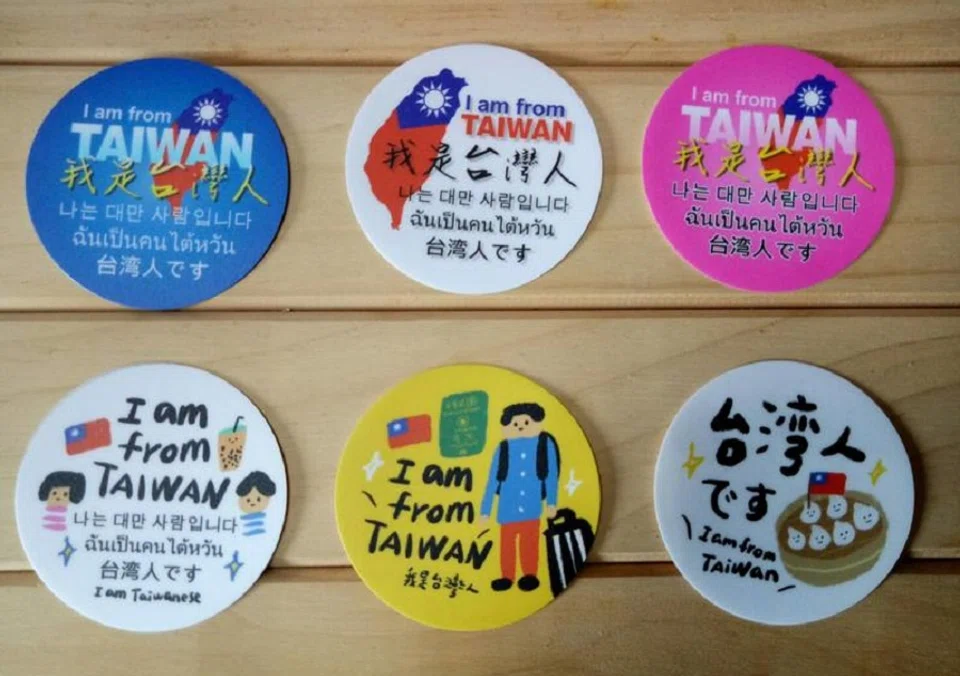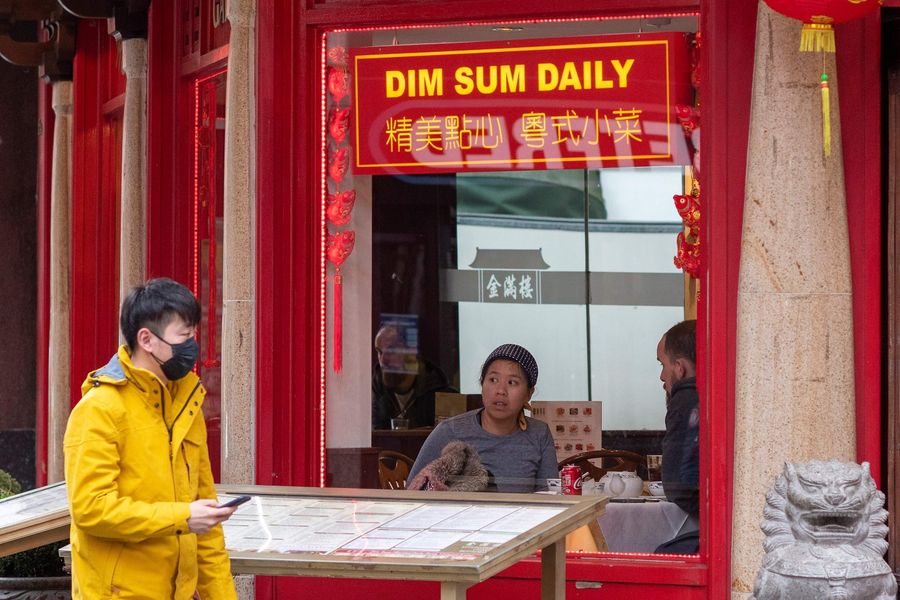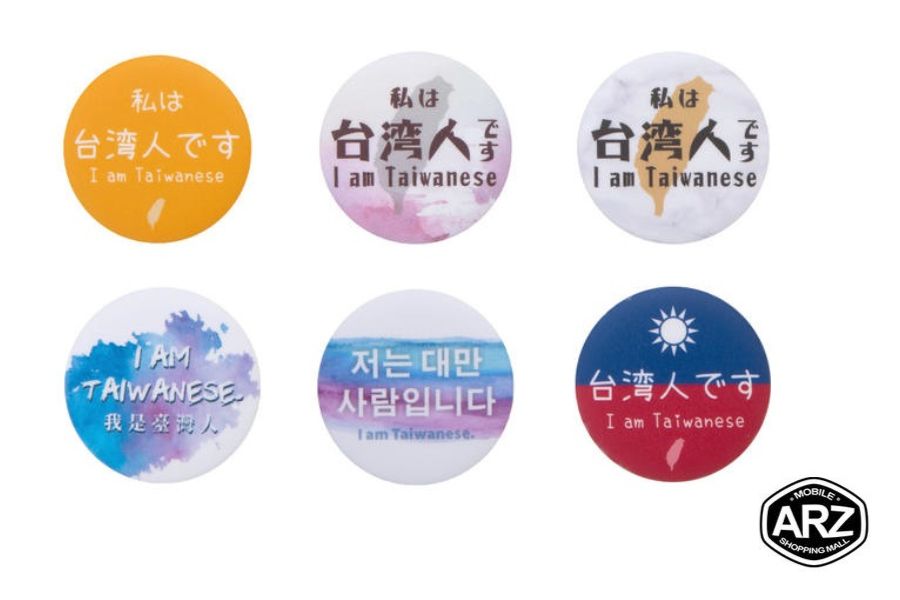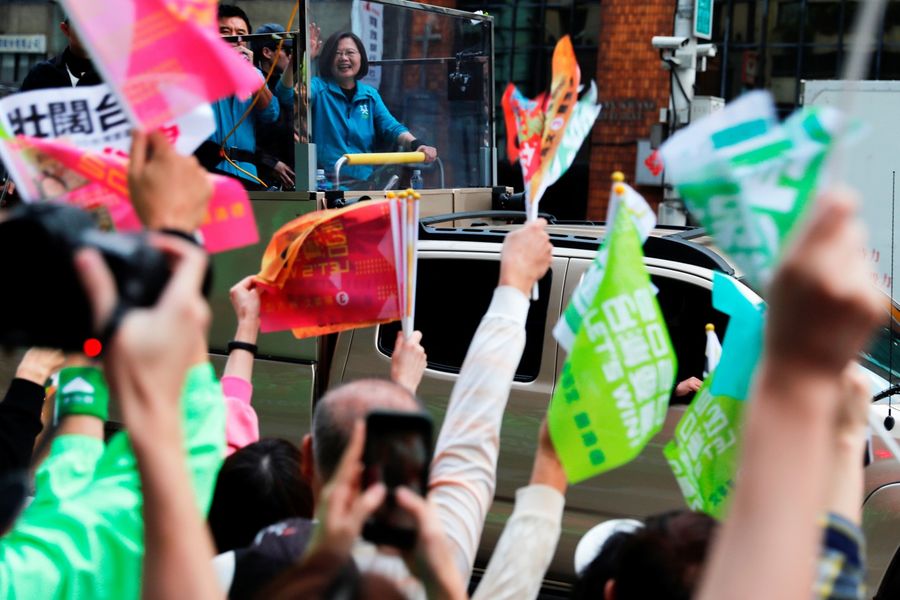Rising sense of Taiwanese identity amid Covid-19 epidemic

Anti-Chinese sentiments arising from the Covid-19 outbreak do not only affect mainland Chinese, but Taiwanese too. In a bid to distinguish themselves from the mainland Chinese, Taiwanese have been snapping up stickers and badges with the words "I am from Taiwan".
While these badges are meant for Taiwanese to use overseas as a preventive measure against sinophobia, it accentuates the Taiwanese sense of identity and may draw mainland China's ire.
Ever since the Covid-19 outbreak spread from Wuhan to different parts of the world, there has been a rise in anti-Chinese sentiments in various Western countries, including France, Germany, and Italy. The Taiwanese who also speak Mandarin are of course embroiled as well.
According to a report by BBC's Chinese language news service, a Taiwanese female student who was studying in Germany was told that she was "sick" and should "stay away" by a ticket inspector when she was taking a train last month.

Apart from Western countries, top tourist destinations of the Taiwanese, like Japan and Korea, have also shown anti-Chinese tendencies in the early stages of the outbreak.
Said Tokyo-based Taiwanese writer Ouyang Jing, in a Facebook post that went viral, "Speaking Mandarin in a bustling area will indeed alert surrounding Japanese."
Travel agencies started the ball rolling
Travel agencies in Taiwan have been providing identification stickers for Taiwanese tourists to lessen the chance of being disparaged abroad. Hot on their heels, various online stores have grabbed at the chance to print luggage stickers, badges, and pins with the words "I am from Taiwan" so that Taiwan people will be able to "prove their identities" when they travel.
According to data from PChome eBay Co. Ltd., a Taiwanese online shopping platform, relevant searches for these products have increased by roughly nine times over the past week. There has also been a 100% increase in sales of badges and stickers. Waterproof luggage stickers have proven to be the most popular, with over a thousand stickers sold within five days.
The online shopping platform also revealed that certain sellers offer language customisation based on travel destination, further boosting the sales of these "proof of identity" products.

Taoyuan-based car wrap service "Artist" (阿提斯特) has also joined in the business of printing and selling "I am from Taiwan" stickers last week. Their packs of 15 round stickers that come in three languages - English, Japanese, and Korean - are going for NT$40 (approximately S$1.80) a pack.
Artist owner Mr Wen told us during an interview that he started printing these stickers for his friends as they had "met with such problems while travelling". In the process, he realised that there was a demand for these stickers and thus started selling them.
"...some people also wish to use this period as a chance to highlight the difference between Taiwan and the mainland." - Professor Chen Chia-yu
Wen did not reveal the sales volume of these stickers and only said that it was "not bad" and that they were "printing them everyday". However, he mentioned that the company will cease the production and sales of these stickers once the outbreak subsides. He also emphasised that these specific "I am from Taiwan" stickers are different from the ones pro-independence groups created for Taiwan passports that read "Republic of Taiwan" or "Taiwan Republic".
The irony of being from Taiwan
According to Professor Chen Chia-yu of Shih Hsin University's Department of Tourism, in the early days of the outbreak, these stickers might have provided a sense of security for Taiwanese outbound tourists. However, with the rapid escalation of the outbreak in places like Japan and Korea where situations are worse than Taiwan, and the classification of Taiwan as a destination with community spread by the US's Centers for Disease Control and Prevention, "the public should be embarrassed to continue using them [the stickers]".
Prof Chen added, "Some tourists didn't think too much and only wanted a sense of security for themselves. But I believe that some people also wish to use this period as a chance to highlight the difference between Taiwan and the mainland. It could also be that the Taiwan presidential elections had just ended and nationalistic sentiments were still strong over the past few months that had led to the current reaction. This could just be the ripple effect of the presidential elections."

Some media commentaries also point out that as Taiwan has experienced unfair treatment from other countries as a result of this outbreak - the Philippines earlier imposed a travel ban on Taiwan under the "one China" policy - and since Taiwan's virus containment measures, unlike the mainland's, have generally been judged to be effective, the Taiwanese people are increasingly placing more attention on sovereignty issues.
Professor Shih Cheng-feng of National Dong Hwa University's Department of Indigenous Affairs and Development told us during an interview that in light of the Covid-19 outbreak, Taiwan and the mainland should not "stay tangled up" anymore. Both sides should distinguish themselves based on "symbols and official names".
...legislators issued a joint statement urging the WHO to establish a comprehensive, institutional approach for accepting Taiwan into the WHO.
Since the outbreak, both sides have engaged in disputes over the World Health Organisation (WHO) and Taiwan-related issues; the arrangement of chartered planes to send Taiwanese businessmen in Wuhan back to Taiwan; and immigration controls on Taiwanese's mainland Chinese spouses and children entering Taiwan.
Beijing has repeatedly criticised the Democratic Progressive Party (DPP) for making use of the outbreak to fight for independence.
However, the DPP will not give up on expanding Taiwan's international space during the current epidemic in the short term. At the opening session of the Legislative Yuan on 21 February involving both the DPP and the Kuomintang, legislators issued a joint statement urging the WHO to establish a comprehensive, institutional approach for accepting Taiwan into the WHO.
